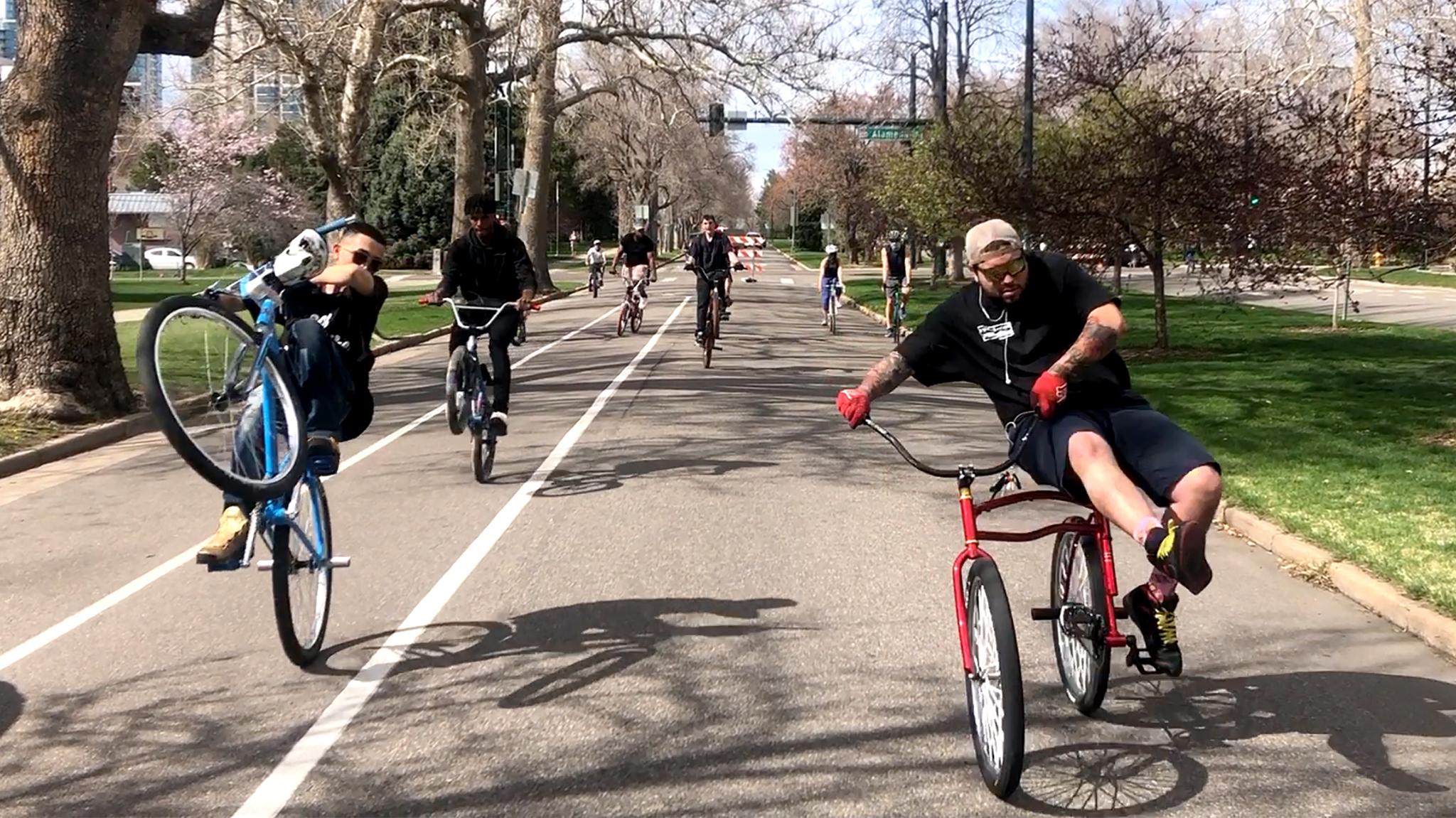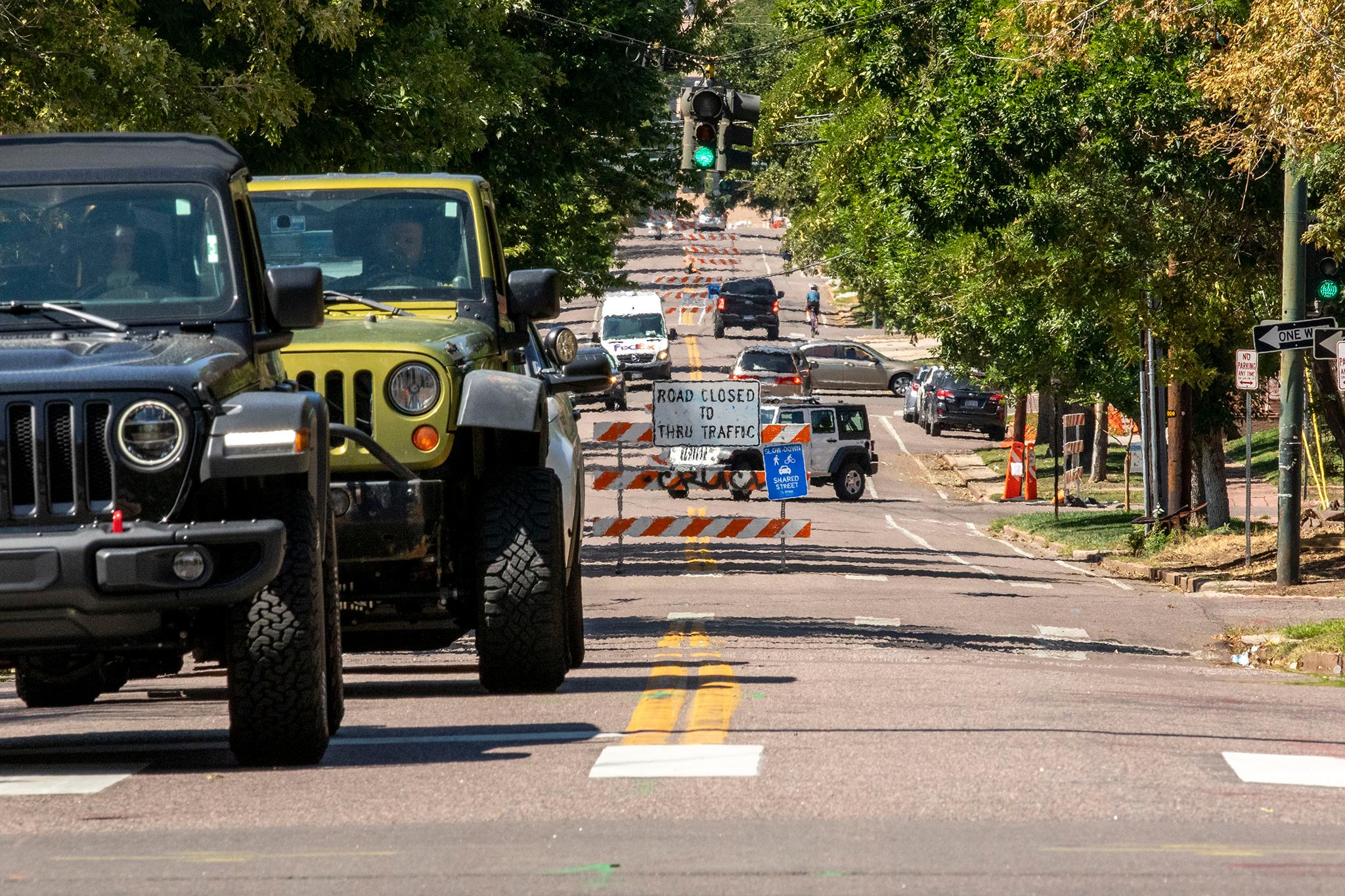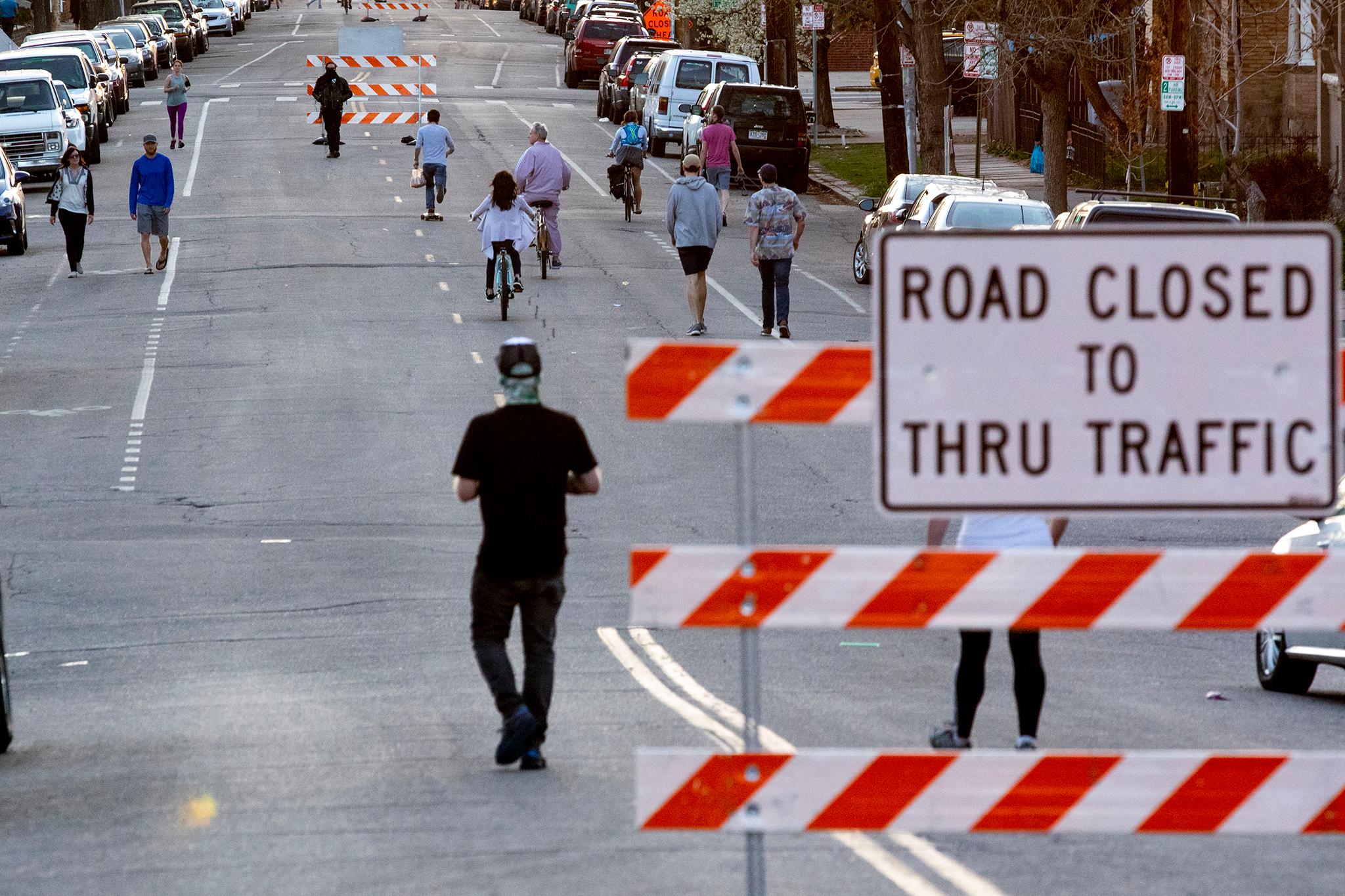The transportation department has canceled some "shared streets" where people have walked, jogged, biked, scooted, and otherwise rolled with fewer threats from cars since the pandemic-era experiment began last April.
Temporary design changes like roundabouts, medians and barricades will remain on some street segments until they receive permanent traffic-slowing measures laid out in previous city plans, the Department of Transportation announced Thursday.
But the new-look 11th Avenue, a particularly popular shared street, will return to its old look west of Cheesman Park -- without barricades or roundabouts that slowed cars and encouraged other travel modes. DOTI watered down the segment of 11th east of Cheesman Park in the winter.
"It's problematic, sure," said Calvin Jefferson, who said he lives on 11th and walks and buses most places because of a medical issue. "It's not a huge deal for everyone but living (on 11th) had been more chill. Things had been pretty back to normal for a while if I'm being honest."
When the pandemic forced physical distancing and necessitated new public spaces to stretch our legs, officials opened eight streets to people and closed them to through-traffic last April. They later added more, then subtracted some, before announcing Thursday that 11th and three blocks of Stuart Street near Sloan's Lake would reopen fully to cars.

One reason for the changes is because people have more space to roam as outdoor and indoor places reopen -- even as the city government simultaneously sounds the alarm over the delta variant. Another big reason is that the traffic-calming measures sprang from an emergency experiment, not one of Denver's many official plans, and planners don't like when things aren't planned. For example, walking in the street is technically illegal, but that's exactly what DOTI set out to encourage with shared streets -- even though walking in the shared streets hasn't been common for many months.
People will start to see changes the week of Aug. 16. Here are some bullet points to make this easier:
Some shared streets will return (or already have returned) to car domination.
- 11th Avenue from Logan to Colorado Boulevard
- Stuart Street from 21st to 24th avenues
- Franklin Street from 28th to 37th avenues
- Irving Street from 2nd Avenue to Gill Place
- Bolling Drive from Chambers Road to Dillon Street
Other shared streets will stay the way they are, at least until permanent changes come.
- Byron Place between Zenobia and Vrain streets has already become a permanent neighborhood bikeway, with traffic-calming measures meant to slow drivers and encourage other modes. Expect new signs in the coming weeks.
- Bayaud Avenue from Sherman to Downing streets has plastic posts and painted markings meant to prioritize people over cars, and the stretch will remain that way until the transportation department makes the segment a permanent bikeway.
- Same with the stretch of 30th Street from Welton to Larimer.
- Marion Parkway from Virginia to Downing will get protected bike lanes later this year, but until then, DOTI will keep the barricades and other traffic-calming stuff.
- 16th Avenue from Pennsylvania to City Park Esplanade will keep its roundabouts and barricades until 2022 when a protected bike lane will be installed. However, the bikeway will only stretch from 16th to Park Avenue, leaving the rest of 16th in a pre-pandemic state.
Jill Locantore, head of the Denver Streets Partnership, said the news is a mixed bag. She doesn't love that what were once streets dominated by people walking and rolling have naturally devolved into calmer yet car-first streets. But she also likes the idea of permanent traffic-calming.
"It's disappointing that the way they implemented the shared streets in the first place, they weren't more aggressive at truly restricting car traffic so that you truly felt it was a safe space to walk in the street," Locantore said. "But I still think it's a win that we basically get an expansion of the neighborhood bikeways on the shared streets that they did this on."
Planners are planning to plan.
Another thing to come out of the shared street experiment is a plan to develop guidelines to inform a plan for a permanent shared streets "program."

"With social distancing no longer required, DOTI is ending its temporary shared streets initiative and, recognizing the popularity of the shared street concept, is launching a planning effort later this year to develop guidelines around what a permanent shared streets program would look like for Denver," DOTI said in a statement.
The transportation department will determine "what type of streets are best candidates" to become shared in the future, according to a DOTI press release. The department will also "formally document" what worked well with the temporary shared streets before deciding what streets can become permanently multimodal from a "public approval standpoint."
As of publishing time, DOTI had not provided a subject matter expert for an interview.













